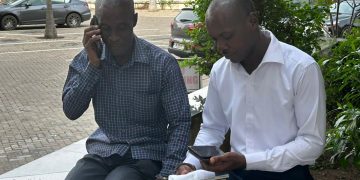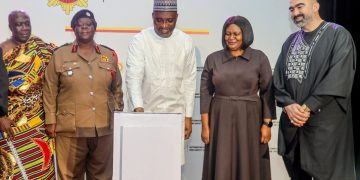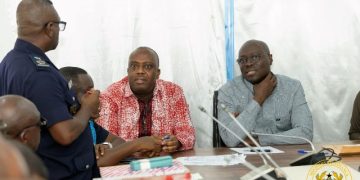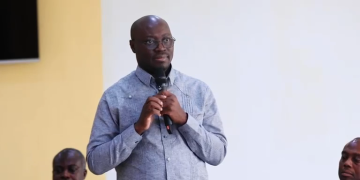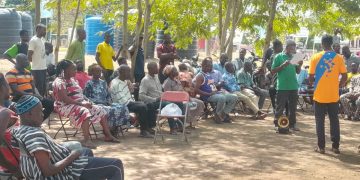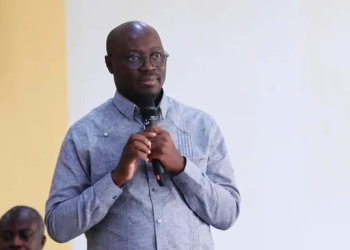The Majority Leader of Parliament, Alexander Afenyo-Markin, has filed an injunction application at the Supreme Court to challenge a petition by Tamale South MP, Haruna Iddrisu, regarding the status of four Members of Parliament.
Haruna Iddrisu’s petition, submitted to the Speaker of Parliament, seeks to have the parliamentary seats for Suhum, Amenfi Central, and Agona West declared vacant due to the decision of the MPs from those constituencies to contest the 2024 elections as independent candidates.
Additionally, the petition calls for the seat of Fomena MP, Andrew Asiamah Amoako, to be declared vacant, as he intends to run for re-election under the New Patriotic Party (NPP) ticket, despite having originally won his seat as an independent candidate.
At a Leaders’ Media Briefing, Afenyo-Markin emphasized the need for a clear legal pronouncement from the Supreme Court to resolve the matter, which has raised questions about the constitutional provisions governing MPs who switch political alignments or contest elections as independents.
He argued that a ruling from the court would bring clarity and settle the ongoing controversies surrounding the affected parliamentary seats.
This case touches on Article 97(1)(g) of Ghana’s 1992 Constitution, which deals with the conditions under which an MP can lose their seat, particularly if they leave the party on whose ticket they were elected or switch from being independent to joining a political party.
The potential implications of this case are far-reaching. If the MPs are found to have vacated their seats, the NPP would lose its slim majority in the current Parliament, potentially derailing government business in the crucial months leading up to the December 2024 elections.
Afenyo-Markin’s affidavit highlights the delicate parliamentary balance at stake. He notes that Ghanaian law prohibits by-elections within three months of a general election. Consequently, if Article 97 clause (1)(e) is strictly interpreted, the ruling party would lose three MPs, reducing their numbers from 138 to 135, while the opposition remains at 137.
This shift, he contends, would result in the opposition assuming majority status for the parliament’s final quarter, potentially altering the legislative landscape in the crucial pre-election period.
Crucially, Afenyo-Markin has also filed for an interlocutory injunction to prevent the Speaker of Parliament from making any rulings on the MPs’ status until the court reaches a decision. He argues that premature action could cause “irreparable or irreversible damage” to these MPs by having their names expunged from the role of the 8th Parliament of the Republic of Ghana.
This legal manoeuvre brings to the fore the complexities of Ghana’s political system and the challenges of interpreting constitutional provisions in a rapidly evolving political landscape. It also underscores the tension between individual political aspirations and party loyalty, a recurring theme in many democracies around the world.
The current constitutional crisis echoes a similar situation from November 2020, when then-Speaker of Parliament Prof. Mike Ocquaye declared the Fomena parliamentary seat vacant. In that case, incumbent MP Andrew Amoako Asiamah, who, incidentally is at the centre of the present legal and constitutional challenge, had decided to seek re-election as an independent candidate after losing the NPP primary.
Ocquaye’s decision was based on Article 97(1)(g) of the 1992 Constitution, the same provision now at the centre of the current dispute. At the time, Ocquaye argued that “Having forfeited the membership of the party on whose ticket he was elected to parliament, the operative language of the constitution is that he shall – which is mandatory – vacate his seat in Parliament.”
This precedent adds weight to the opposition’s current stance. However, Majority Leader Afenyo-Markin’s legal challenge seeks to distinguish the present circumstances, arguing that the MPs’ decisions to run as independents in the upcoming election should not affect their status in the current parliament.
This nuanced interpretation sets the stage for a landmark ruling that could redefine the application of Article 97(1)(g) in Ghana’s evolving political landscape.
Source: www.kumasimail.com


